Christian Apologetics Resources
Christian Self-Defense – Introduction
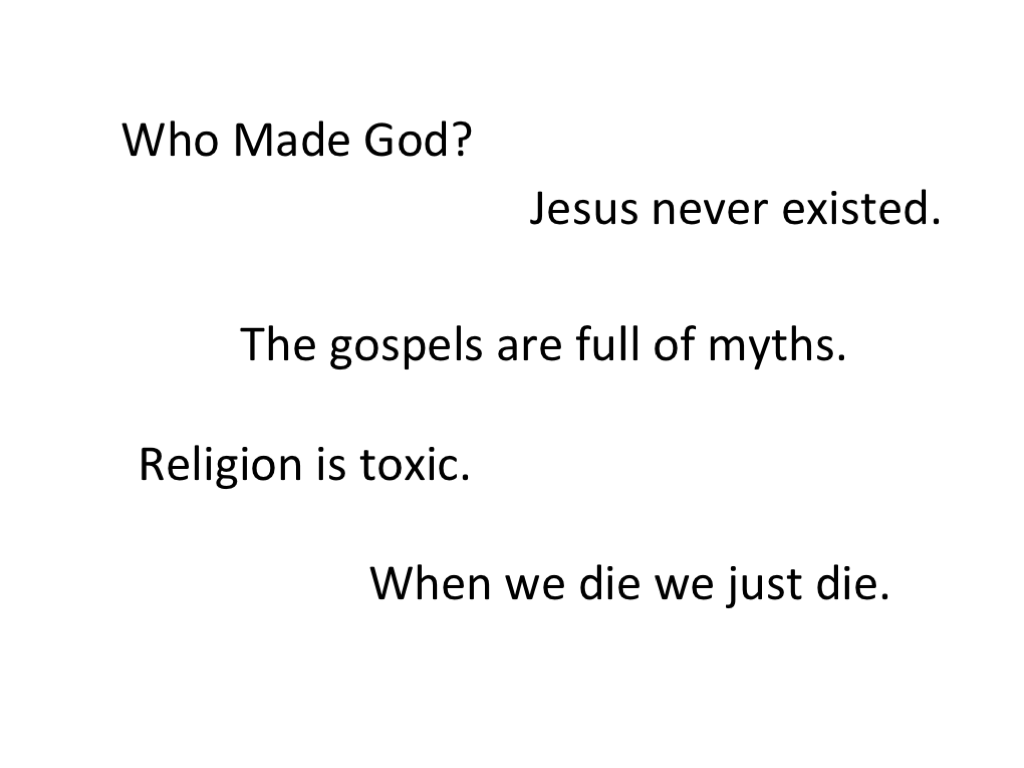
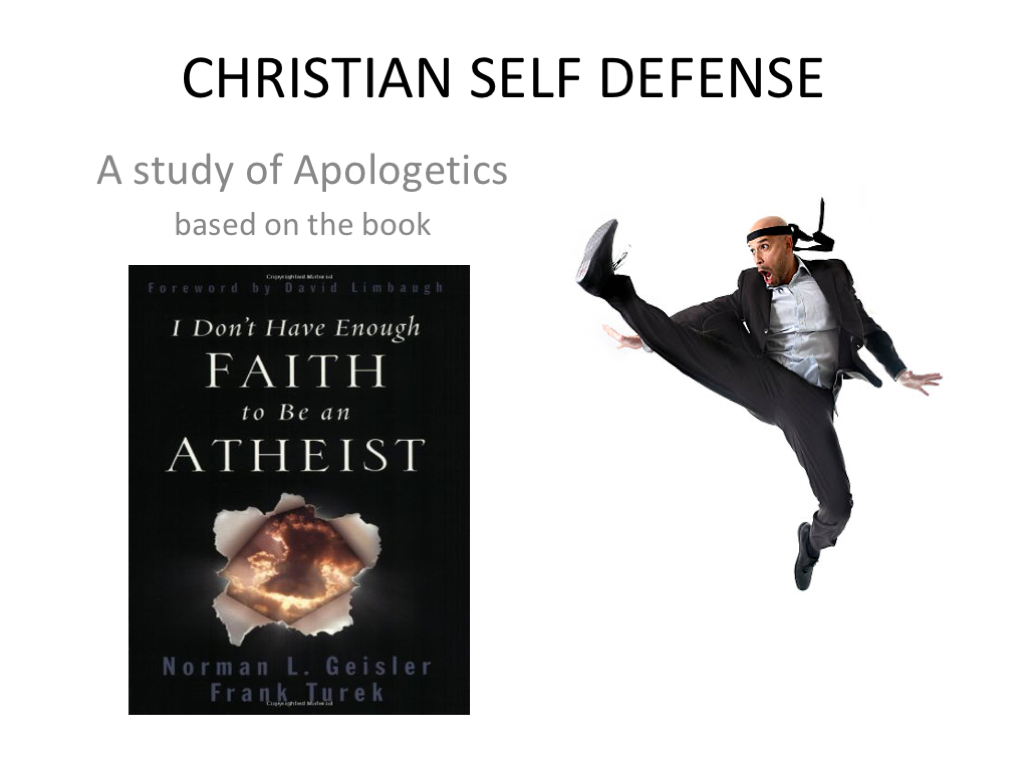
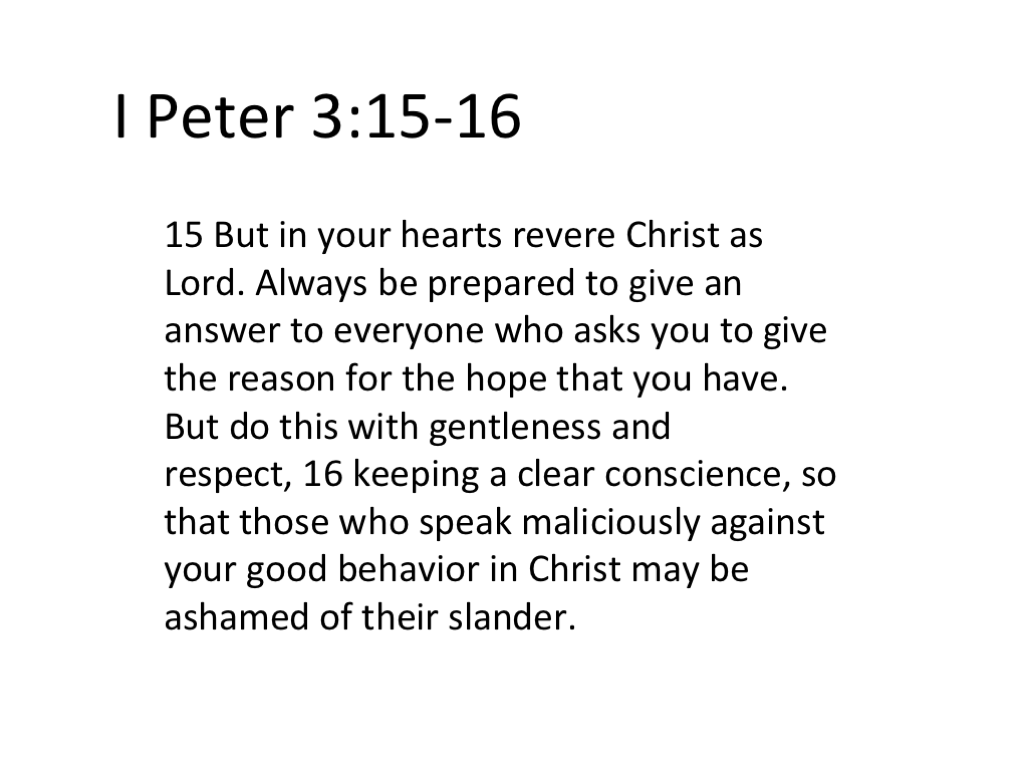
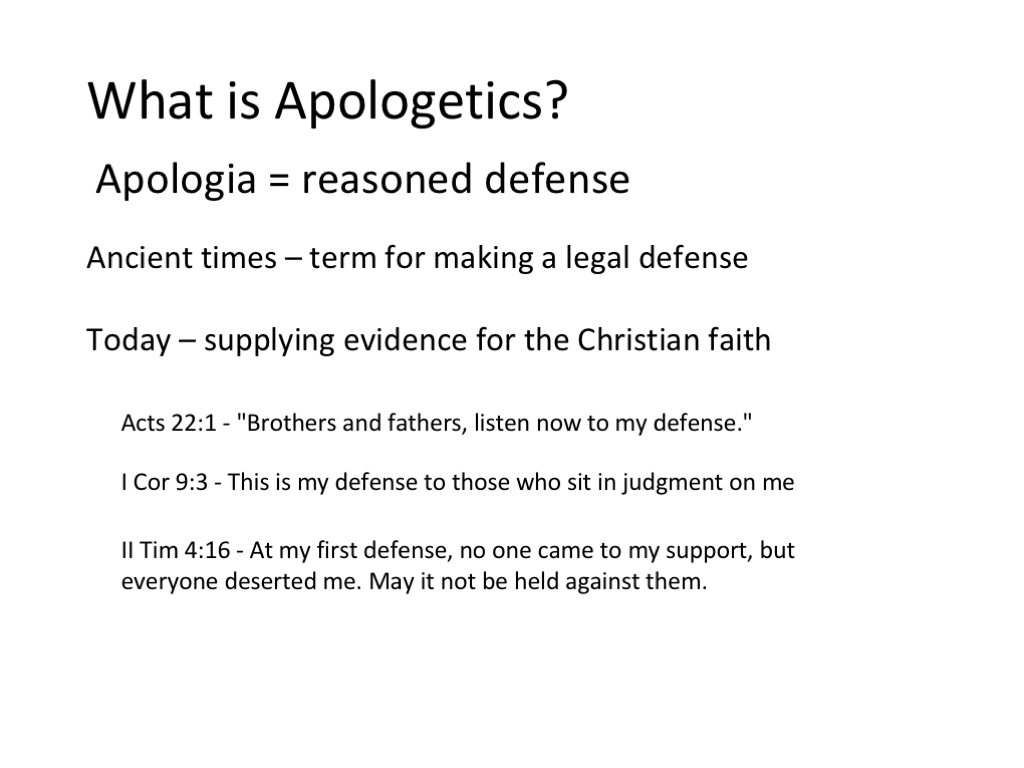
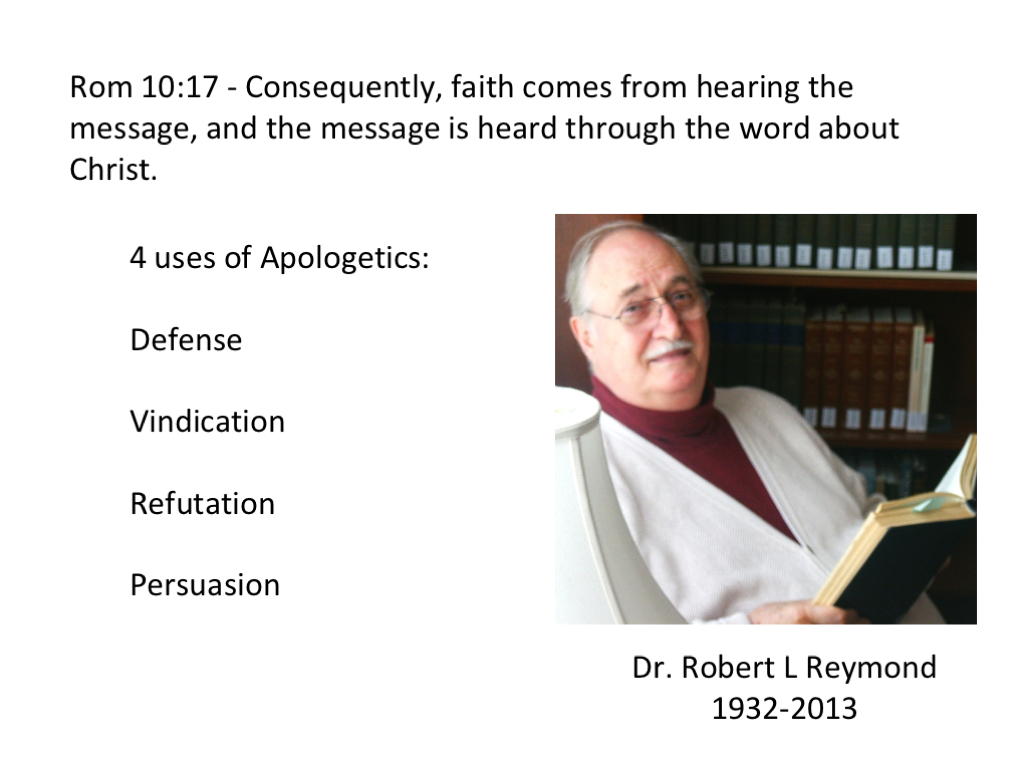
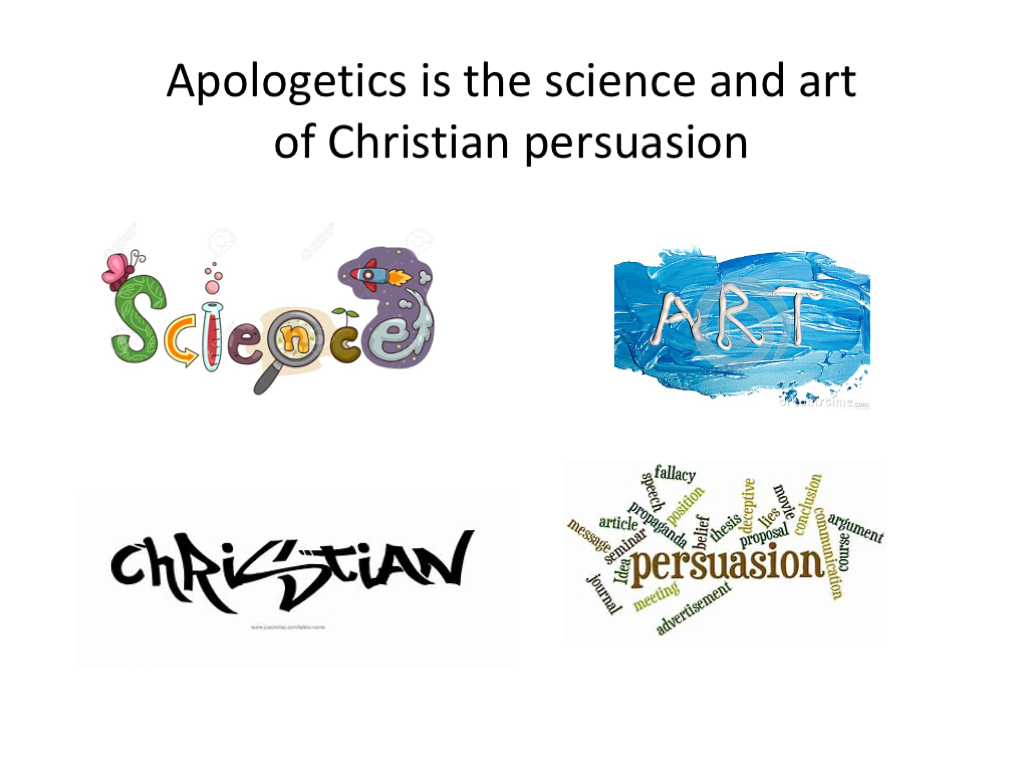
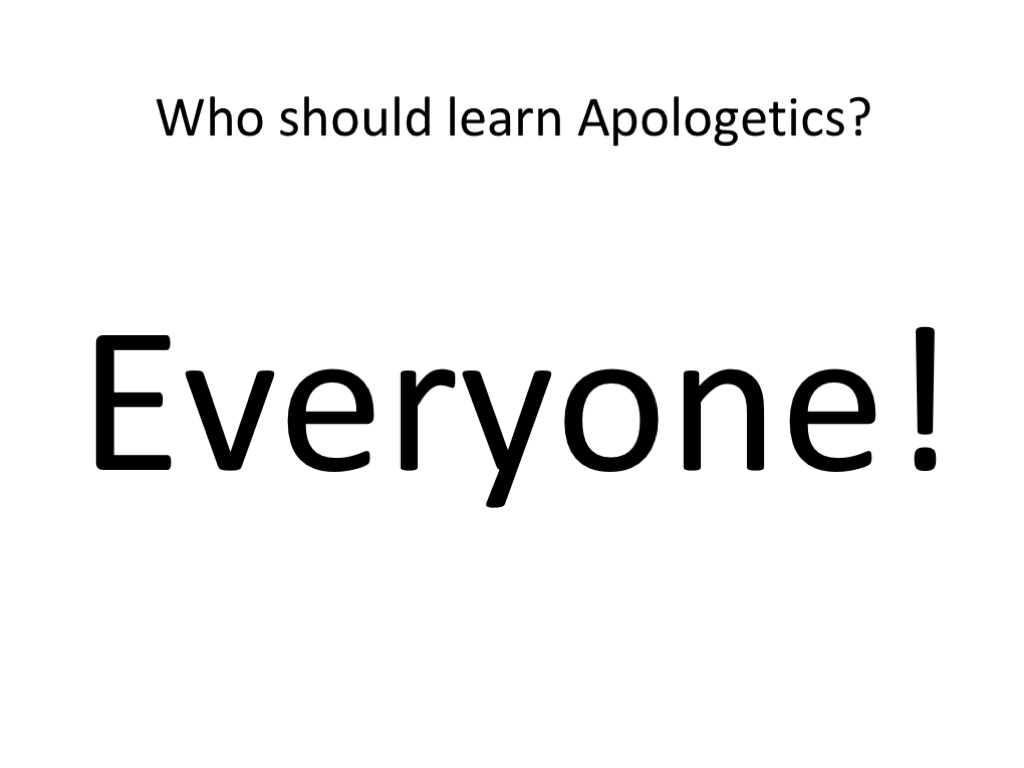
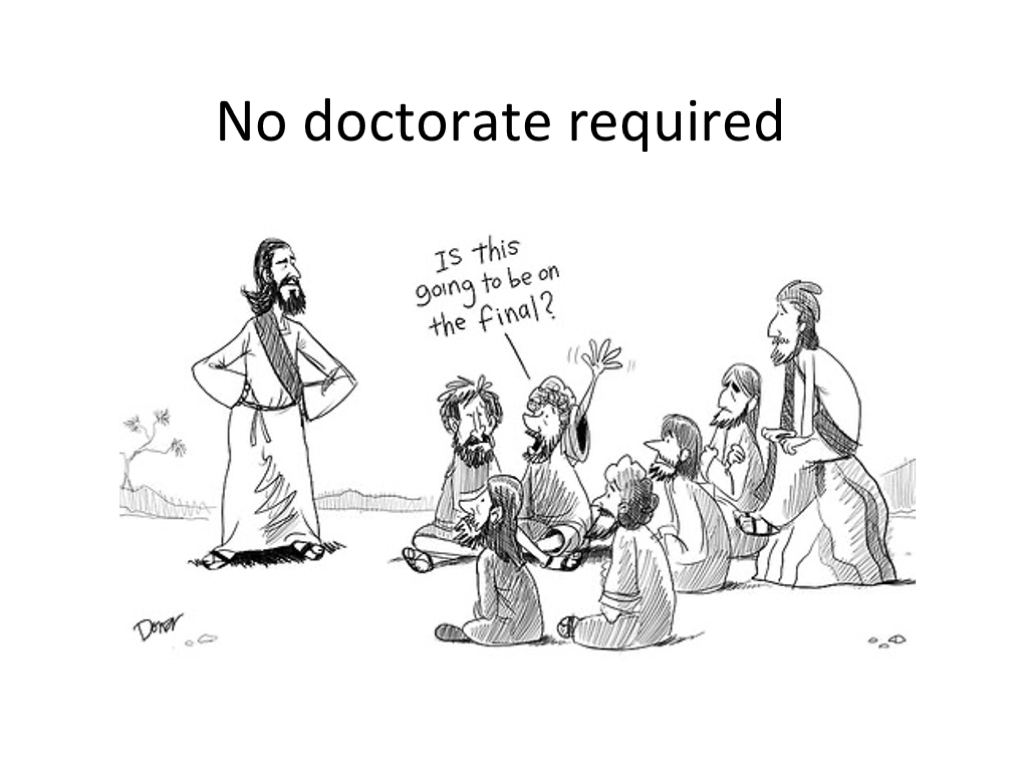
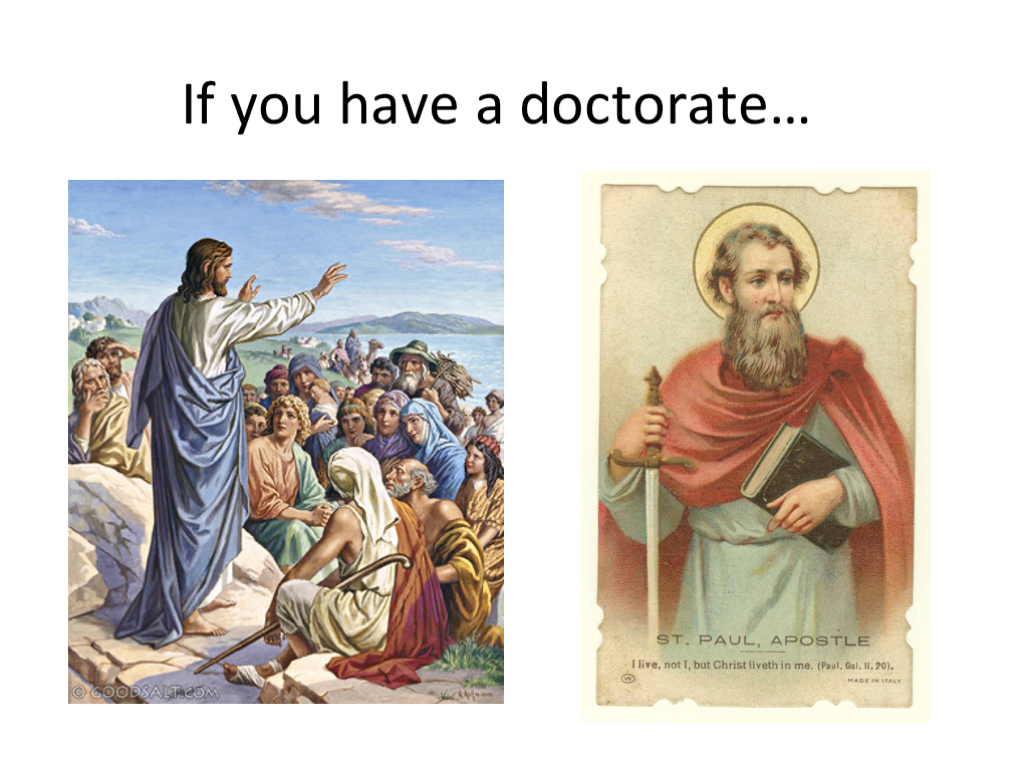
















Christian Self-Defense - Introduction
Main Points Covered
Christian Self Defense, A study of Apologetics based on the Book, I don’t have Enough Faith to Be an Atheist.
Presentation notes for Christian Self Defense — Introduction
Atheist arguments
Who made God?
Jesus never existed
The gospels are full of myths
Religion is toxic
When we die we just die
I Peter 3:15-16
15 But in your hearts revere Christ as Lord. Always be prepared to give an answer to everyone who asks you to give the reason for the hope that you have. But do this with gentleness and respect, 16 keeping a clear conscience, so that those who speak maliciously against your good behavior in Christ may be ashamed of their slander.
What is apologetics
a. greek definition
Apología ("reasoned defense") is the term for making a legal defense in an ancient court. Today: apología ("biblical apologetics") is used for supplying evidences for the Christian faith.
b. NT references
Acts 22:1 - "Brothers and fathers, listen now to my defense." - Paul giving his testimony to angry Jews in Jerusalem
I Cor 9:3 - This is my defense to those who sit in judgment on me. - Paul defending his right to be called an apostle
II Tim 4:16 - At my first defense, no one came to my support, but everyone deserted me. May it not be held against them. - Paul talking about one of his trials
c. Not a tool to force belief (Rom 10:17)
Consequently, faith comes from hearing the message, and the message is heard through the word about Christ.
d. Dr. Robert Reymond, (1932-2013) former Associate Prof of Theology and Apologetics at Covenant Theological Seminary in St. Louis - defense, vindication, refutation, persuasion (from The Justification of Knowledge, 1976)
1. Defense - answering particular objections (supposed contradictions, misunderstanding about the Christian faith, etc.)
2. Vindication - shows how the Christian worldview is one that should be adopted
3. Refutation - shows how and why other religions/beliefs are incorrect
4. Persuasion - sharing the Gospel
e. Apologetics is the science and art of Christian persuasion
1. Science - Interdisciplinary - geological, archaeological, historical, anthropological, biological, etc. Don't have to be an expert, but can require lots of learning
2. Art - Lots of debate practice. Unconsciously competent
3. Christian - Walk your talk
4. Persuasion - What good does it do to win a debate if the person doesn't change?
Acts 17:2-4 - As his custom was, Paul went into the synagogue and on three days he reasoned with them from the Scriptures, explaining and proving that the Christ had to suffer and rise from the dead. “This Jesus I am proclaiming to you is the Christ,” he said. Some of the Jews were persuaded and joined Paul and Silas, as did a large number of God-fearing Greeks and not a few prominent women.
Who should learn apologetics? - Everyone!
a. No doctorate required - disciples - who were they? Most fishermen, one a tax collector. They were willing and available.
I Peter 5:2 - Be shepherds of God’s flock that is under your care, watching over them—not because you must, but because you are willing, as God wants you to be; not pursuing dishonest gain, but eager to serve
b. If you have a doctorate - Jesus and Paul - advanced degrees
Jesus - gave evidence of His claims by showing how He had come to fulfill OT prophecy
Paul - well schooled in the Law and taught personally by Jesus and the apostles
Why should we learn apologetics?
a. I Peter 3:15 - God says be ready!
15 But in your hearts revere Christ as Lord. Always be prepared to give an answer to everyone who asks you to give the reason for the hope that you have
b. Better know faith and share effectively
c. Answer questions
d. to gain influence
e. prevent doctrinal apostasy - misrepresenting or falling away from doctrine
f. answer false claims of cults and other religions
How do we "do" apologetics?
a. Elements of Biblical model of persuasion
1. Love - Jesus responded to those that didn't believe with compassion
2. Understanding - Know who you're talking to. Are they hostile, indifferent, curious, or genuinely seeking
3. Relevance - Jesus talked to people in their situation (woman at the well)
4. Identification - I Cor 9:22-23
To the weak I became weak, to win the weak. I have become all things to all people so that by all possible means I might save some. I do all this for the sake of the gospel, that I may share in its blessings.
b. Deconstructive apologetics
1. 2 Cor 10:5
We demolish arguments and every pretension that sets itself up against the knowledge of God, and we take captive every thought to make it obedient to Christ.
a. Study - know your stuff!
b. Assess "opponent" - Goes back to Understanding
c. What made them choose to believe what they believe?
1. Ask questions and listen - find out what the real objection is
how important is that objection/why is that an objection
how much research have they done to find an answer on their own
what answers have they come up with
if you had a reasonable answer to their question would it change their mind
what would they consider reasonable
2. Some people just like to fight - beware of trolls!
d. Be honest
If you don't know the answer, say so. People can sense a phony
e. Remain Calm!
Nothing worse than a Christian losing their temper
2. You don't want to win an argument, you want to win a soul
c. Other methods
1. Presuppositional - II Pet 3:5 - But they deliberately forget that long ago by God’s word the heavens came into being and the earth was formed out of water and by water.
Presupposition ex - "I don't believe in God anymore", presupposition = they used to believe in God. Goal - find out why they stopped believing and bring them back.
a. assumes existence of God and truth of Bible
b. relies solely on biblical arguments
c. unbeliever should have some biblical foundation/Christian background
2. Classical - Rom 1:20 - For since the creation of the world God’s invisible qualities—his eternal power and divine nature—have been clearly seen, being understood from what has been made, so that people are without excuse.
a. stresses arguments for existence of God first
b. utilizes cosmological, teleological, and moral arguments
Cosmological - The universe came into being; something/one caused that to happen; that something/one had to be eternal/uncaused; God is the uncaused cause
Teleological - The universe shows signs of being designed (gravity) so there must be a Designer
Moral - morals cannot be subjective. There must be an objective standard of right and wrong
3. Evidential - I Cor 15:3-7 - For what I received I passed on to you as of first importance: that Christ died for our sins according to the Scriptures that he was buried, that he was raised on the third day according to the Scriptures, and that he appeared to Cephas, and then to the Twelve. After that, he appeared to more than five hundred of the brothers and sisters at the same time, most of whom are still living, though some have fallen asleep. Then he appeared to James, then to all the apostles
a. using historical, logical, etc arguments - relies on sources outside of the Bible to confirm biblical accounts
b. good for the "doctorate" atheists
Outline of class
a. Setup like a legal argument
- Truth about reality is knowable.
- The opposite of true is false.
- It is true that the theistic God exists. This is evidenced by:
3.1. Beginning of the universe
3.2. Design of the universe
3.3. Design of life
3.4. Moral Law
- If God exists, then miracles are possible.
- Miracles can be used to confirm a message from God.
- The New Testament is historically reliable. This is evidenced by:
6.1. Early testimony
6.2. Eyewitness testimony
6.3. Authentic testimony
6.4. Eyewitnesses who were not deceived
- The New Testament says Jesus claimed to be God.
- Jesus’ claim to be God was miraculously confirmed by:
8.1. His fulfillment of many prophecies about Himself
8.2. His sinless life and miraculous deeds
8.3. His prediction and accomplishments of His resurrection
- Therefore Jesus is God.
- Whatever Jesus (who is God) teaches is true.
- Jesus taught that the Bible is the Word of God.
- Therefore, it is true that the Bible is the Word of God (and anything opposed to it is false).
b. Different teachers for different sections
1. Truth about reality is knowable, the opposite of true is false - Nick
2. It is true the theistic God exists (cosmological, teleological, moral), if God exists then miracles are possible, miracles can be used to confirm a message from God - Chris
3. NT is historically reliable, NT says Jesus claimed to be God, Jesus' claim to be God was miraculously confirmed, therefore Jesus is God - Sandi
4. Whatever Jesus teaches is true, Jesus taught that the Bible is the Word of God, therefore the Bible is true and anything that contradicts is false - me
Footer
About Apologetics Online
Practical Apologetics, a study in the practical skills you need to answer today’s questions and challenges with gentleness and respect.
Additionally, this course is supplemented extensively with materials from leading Christian apologists from around the world. It is specifically intended to address the mistaken belief that science and Christian religion are at odds, demonstrating the growing scientific evidence supporting scripture. We look forward to seeing you in class.
Current Study Course
Subscribe to Apologetics Online to get your notice about new content, and upcoming courses!